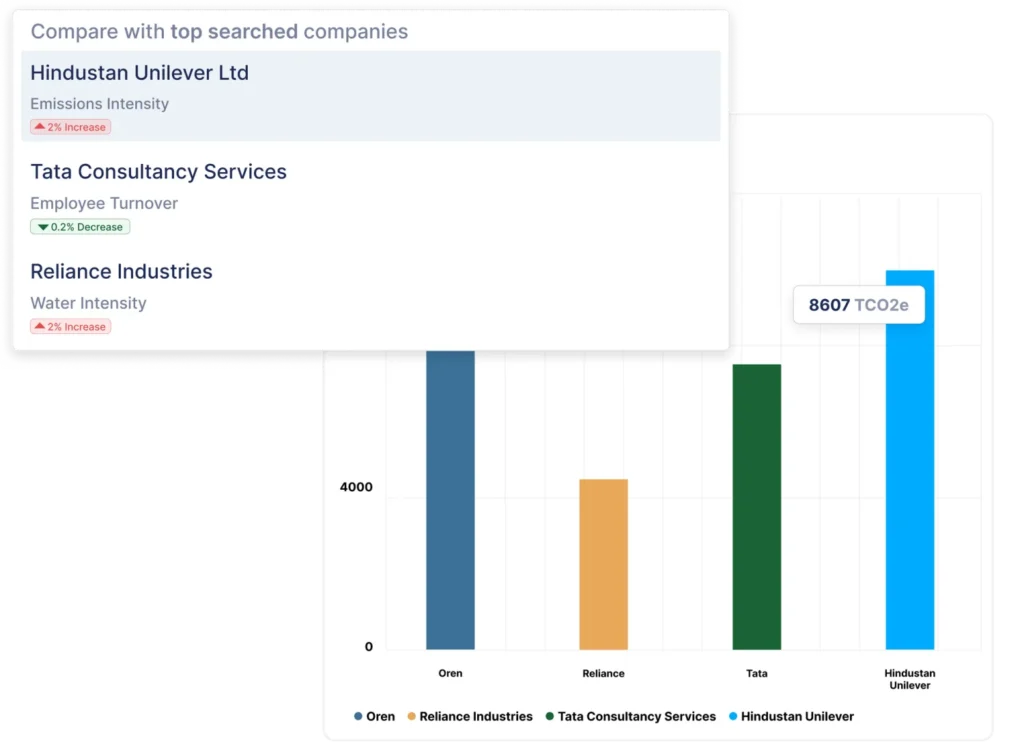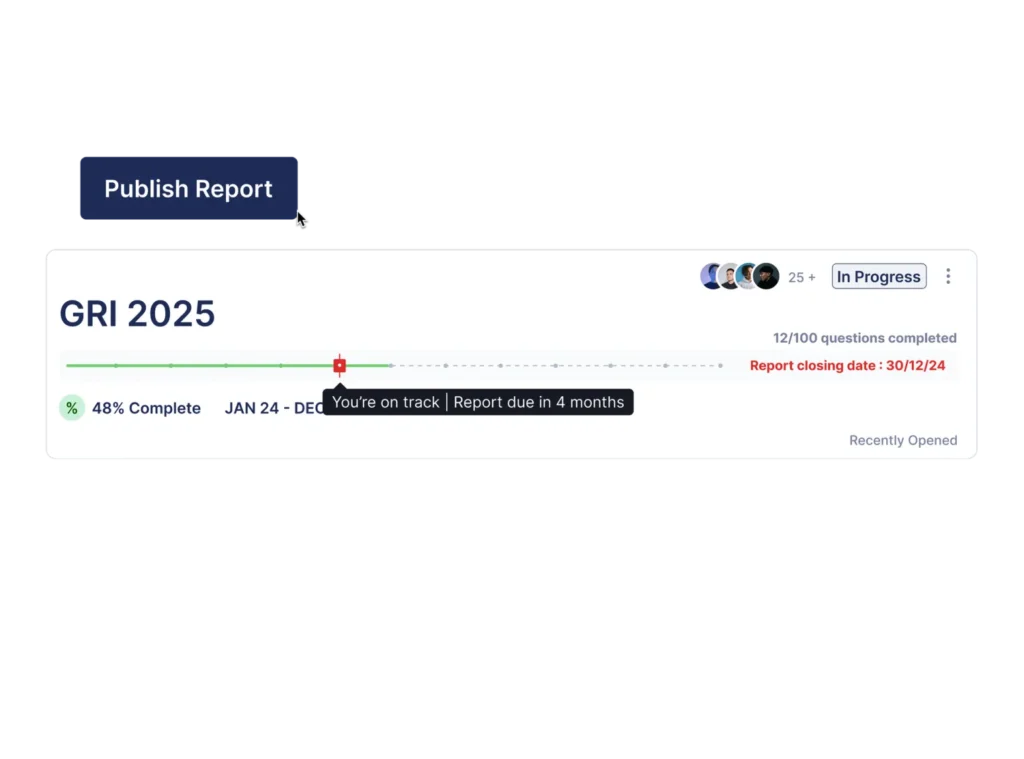Unlock Global Trust with GRI Reporting
How IDS Simplifies Your Sustainability Journey
Ready-to-use GRI Template
Simplify your reporting process with our pre-configured template that ensures consistency and adherence to GRI Standards
Auto-mapping of Data
Use automation to precisely map your data to the appropriate GRI indicators—ensuring accuracy and easing the materiality validation process
Incorporate Proven Practices
Measure your performance against peers to uncover gaps and enhance reporting quality in line with recognized industry norms
Compelling, Impactful Reports
Generate GRI-aligned reports that reflect data accuracy, performance clarity, and reporting credibility

Maximize Global Impact with Optimized GRI Reporting
Our GRI reporting platform optimizes the reporting process, helping your organization meet GRI standards and create reports with global relevance.
- Smart Data Mapping & Capturing Automatically pull and assign ESG data to the correct GRI indicators for consistent and reliable reporting
- Enhance Report Quality with Proven PracticesStrengthen report integrity using best-in-class standards and identify disclosure gaps through benchmarking
Clear, Compliant, and Credible GRI Reporting
Backed by ESG specialists, our platform supports reliable data capture, stakeholder-focused materiality analysis, and smooth report generation—helping you share your sustainability performance with clarity at both regional and global levels.
- Materiality Assessment & Stakeholder EngagementIdentify high-impact sustainability issues through inclusive stakeholder engagement and structured materiality evaluation
- Generate Reports in One-ClickCreate GRI-aligned reports effortlessly and maintain full visibility across every disclosure

Accelerate Your Sustainability Journey
FAQs
GRI Standards are globally adopted guidelines that help organizations disclose their economic, environmental, and social performance. These interconnected standards aim to improve transparency, consistency, and the overall quality of sustainability reporting.
These standards are suitable for organizations of all types and sizes—including global corporations, mid-sized businesses, non-profits, industry associations, and government agencies—interested in reporting on their sustainability practices.
GRI Standards are voluntary in nature. Still, many organizations choose to use them to improve transparency and demonstrate accountability in sustainability practices. In some regions, laws or regulatory bodies may encourage or require ESG reporting, and GRI Standards are often used to meet such expectations.
By adopting GRI Standards, organizations can better understand and manage their impacts on society, the environment, and the economy. This approach enhances stakeholder confidence, supports responsible decision-making, and enables performance comparisons across industries.
The GRI framework consists of three main types of standards:
- Universal Standards: Cover broad topics relevant to all organizations, such as ethics, governance, and general sustainability impacts.
- Sector Standards: Tailored to specific industries like Oil & Gas, Coal, and Agriculture—especially those with significant environmental footprints.
- Topic Standards: Focus on particular areas like Waste, Biodiversity, Energy, Occupational Safety, and Equal Opportunity.
Organizations should begin by reviewing the standards on the GRI website and identifying which ones are applicable to their operations. A key step involves engaging with internal and external stakeholders to identify material sustainability issues. Joining GRI’s training programs or consulting ESG professionals can also support effective adoption.
Blogs
Industry Insights to Help You Stay Ahead in Compliance and Sustainability
Accelerate Compliance. Reduce Carbon Footprint. Unlock Sustainable Growth.
Our Global Presence

UK
London

EUROPE
Netherlands

USA
New York
INDIA
Mohali (HQ)
Mohali
Mohali
Chandigarh
Noida
Noida



